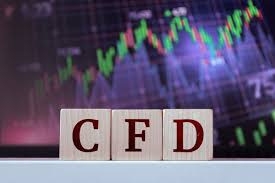
CFD Brokers: Your Gateway to Trading
If you’re new to the world of CFD trading, it’s crucial to understand how CFD brokers operate before entrusting them with your investments. This guide will cover everything you need to know about CFD brokers, from the basics of CFD trading to the most important factors you should consider when choosing a cfd broker. Let’s dive in!
What is a CFD broker, and how do they work?
CFD brokers facilitate trades between buyers and sellers of Contracts for Difference (CFDs), which are financial derivatives that allow traders to speculate on the price movement of underlying assets such as stocks, commodities, currencies, and indices. CFDs can be traded both long and short, and traders can use leverage to increase their buying power and maximize profits (or losses).
When traders open a CFD position, they enter into a contract with the CFD broker that reflects the price movement of the underlying asset. In other words, they don’t own the actual asset but instead bet on its performance. CFD brokers make money by charging a spread (the difference between the buying and selling prices of the CFD) and/or a commission on each trade.
What are the key features of a good CFD broker?
There are several factors to consider when choosing a CFD broker, including:
Trading platform: The trading platform provided by a CFD broker should be user-friendly, reliable, and offer a range of analytical and risk management tools.
Range of tradable assets: A good CFD broker should offer a diverse range of tradable assets, including stocks, forex, commodities, and indices, to cater to a variety of trading strategies.
Customer support: A CFD broker should provide excellent customer support, including live chat, phone, and email support, as well as educational resources and training materials for traders of all levels.
How can you assess the credibility of a CFD broker?
Before opening an account with a CFD broker, you should do your due diligence to ensure they are reputable and trustworthy. Here are some ways to assess the credibility of a CFD broker:
Check their regulatory status: Make sure the CFD broker is licensed and regulated by a reputable financial authority in their jurisdiction.
Read reviews from other traders: Look for objective and independent reviews from other traders on trustworthy websites, such as Trustpilot or Forex Peace Army.
Check their trading conditions: Make sure the CFD broker offers reasonable spreads, competitive leverage, and a fair commission structure. Beware of brokers that offer unrealistic bonuses or promotions, as these are often a red flag.
What are the risks of trading with a CFD broker?
While CFD trading can be highly profitable, it is also associated with significant risks, including:
Counterparty risk: When you trade with a CFD broker, you are exposed to counterparty risk, which means the broker may not be able to honour its obligations to you in certain circumstances, such as insolvency or fraud. Make sure your CFD broker is licensed and regulated, and keep your funds segregated and protected through reputable payment methods.
Conclusion:
In conclusion, understanding the fundamentals of CFD brokers is essential for any retail trader looking to open a CFD trading account. While it can be challenging to navigate the complex world of CFD brokers, it’s crucial to do your due diligence and research before putting your money on the line. By considering the factors outlined in this guide and practicing good risk management, you can make informed decisions and enjoy the benefits of CFD trading while minimizing your risks.